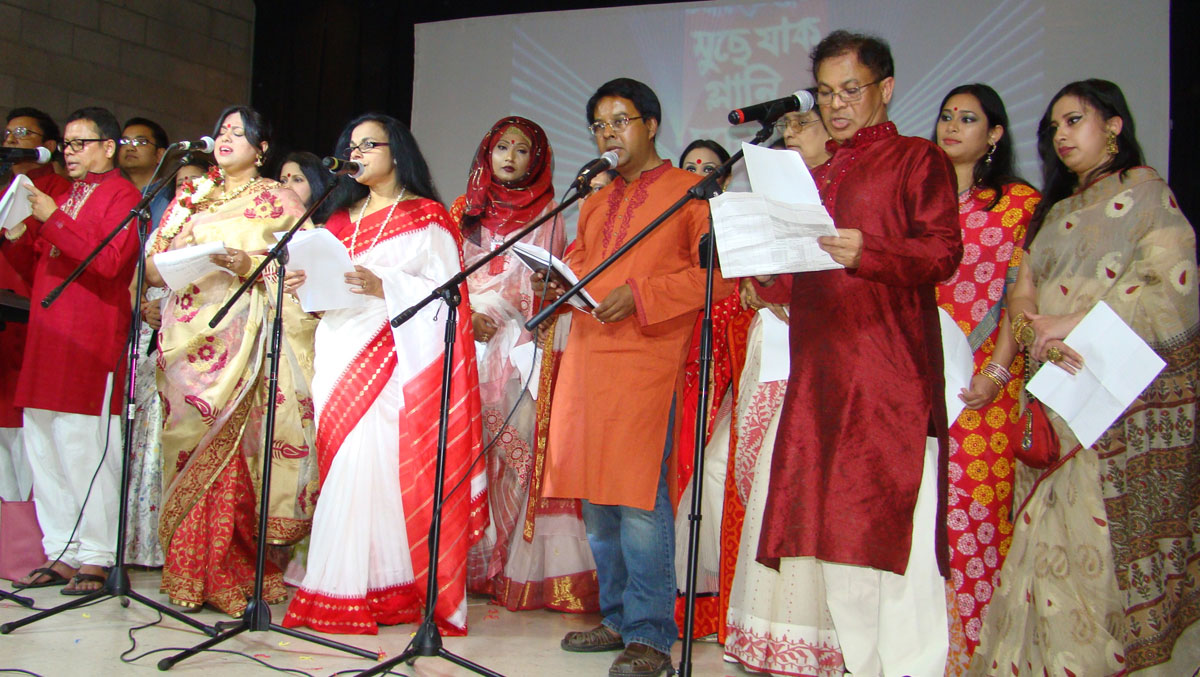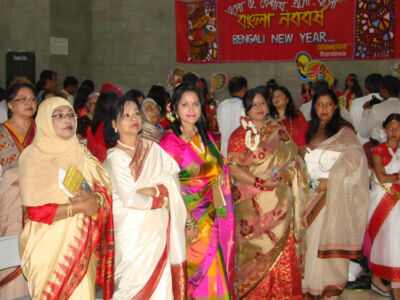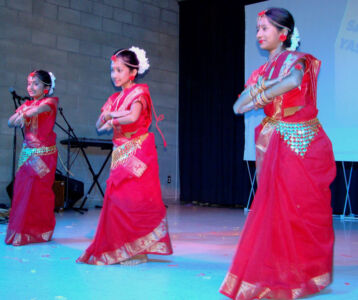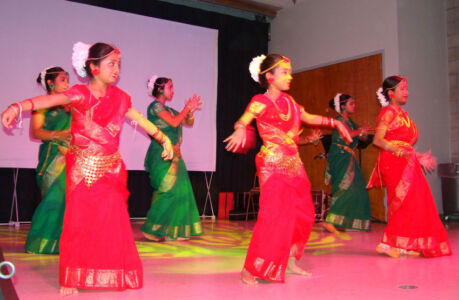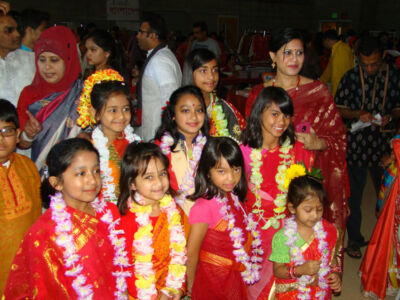BOISAKHI MELA IN SACTO
Bengali Songs. (All photos: Ras H. Siddiqui)
It is well known that one of the largest annual celebrations of Bengali New Year or “Pohela Boishakh” outside the country of Bangladesh or the state of West Bengal in India is held in the area around East London called Brick Lane. But since one cannot bring Brick Lane to places like California, at least the Bengali community here can bring the spirit of the festival to our Capital City. This year the Bangladeshi-West Bengali community in the greater Sacramento area led by the local Anandamela team did just that as it celebrated a very colorful cultural event at the Orangevale Community Center with several hundred people in attendance, April 16, writes Ras H. Siddiqui. (@Siliconeer, #Siliconeer, #SacramentoBanglaNewYear, #RasSiddiqui)
It was a display of collective pride in a culture that has produced South Asia’s only native language (with some English translations involved) Nobel Prize in Literature to date, that being Bengali writer Rabindranath Tagore in the year 1913. Tagore and Kazi Nazrul Islam still remain the two titans of Bengali poetry and just cannot be ignored in any Bengali celebration which involves songs and music. Rabindra Sangeet and Nazrul Geeti are performed at almost all of these festivals and Boishakhi Melas are no exception.
After having attended a number of these Sacramento area Boishakhi events and even offering minor suggestions it was indeed a welcome sign to see them move and have the annual mela at this larger Orangevale location instead of in the nearby college town of Davis mainly because of capacity issues. But even this larger location may be too small soon, as this event and the area Bengali community grows. And who knows, maybe soon we will see a Bengali/Bangladeshi newspaper resurface again in northern California. Another welcome addition at least to the Sacramento area would be a restaurant which serves Bengali cuisine.
Delicious Bengali food was available for sale at this event. This writer’s only complaint was that Jhal Muri was not present this year. This puffed rice street food delicacy can be heavenly, and the available Chatpati just could not fill in that void. And one had to be quick to grab the delicious best because the Ilish Maach (Hilsa Shad fish cooked Bengali style) disappeared quickly here. But for some of us, that loss was made up by some absolutely great homemade Chom Chom and Roshogolla desserts at this event.
Bengal is a land rich in colors where green, red and gold dominate. This bouquet of color was reflected in the attire of the women and children present, both on stage when dances were performed and amongst the audience. Boishakhi brings forward women and children dressed in their very best. And the dances were once again well done and coordinated along with the many songs that took the audience through memory lane. In closing, Happy Bengali New Year 1423 from Sacramento!
